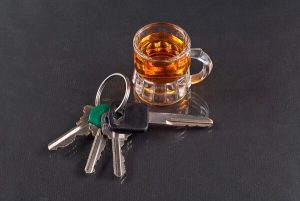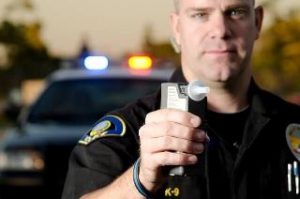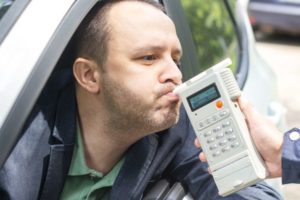Trusted Albuquerque DUI Attorneys and DWI Lawyers Ready To Fight For You

DUI and DWI offenses can occur on the most unsuspecting nights. Many people are not aware of the amount of alcohol that equals the legal limit of .08 blood alcohol content, but it is often much lower than you suspect.
For many women, simply having more than one drink can put you over the limit. However, it is important to recognize that a DUI or DWI charge against you is not a conviction and there are still steps you can take to prevent it from remaining on your record.
Contact the experienced Albuquerque DUI Attorneys at New Mexico Criminal Law Offices for a free legal consultation and professional legal protection if you or a loved one have been accused of a DUI or DWI.
DUI or DWI Laws in Albuquerque, NM
Driving or operating a motor vehicle while intoxicated is a crime. This is true for every state in America, and for most countries of the world. New Mexico law defines driving while intoxicated, or “DWI”, as operating a motor vehicle with a blood alcohol concentration greater than .08 if you are over 21 years old, greater than .02 if you are under 21 years old, or greater than .04 if you are driving a commercial vehicle.
The reason for such strict laws is due to the undeniable dangers of drunk driving. In 2010, over 10,000 people were killed in alcohol-related traffic accidents. This amounts to almost 30 people every day, or an average of one American death every 48 minutes. Out of all traffic fatalities, roughly one-third are due to drivers being impaired from alcohol consumption.
If you have been arrested for DWI or DUI contact our Albuquerque DUI law firm now. Let the trusted DUI lawyers at New Mexico Criminal Law Offices help you.
Alcohol-Related Traffic Fatalities
In Albuquerque, the trend follows the rest of the country. In 2011, there were 353 total traffic fatalities, 34 percent of which were alcohol-related. This percentage has been declining fairly steadily in the past 30 years when roughly 65 percent of traffic deaths were alcohol-related, but it is still far higher than is acceptable.
What are the Two Classifications of Drunk Driving?
There are two classifications of drunk driving recognized in all 50 states, both statutory offenses.
- The first is the original offense, known variably as driving under the influence (DUI) and driving while intoxicated or Impaired (DWI). This offense depends only upon the observations of the officer making the traffic stop. If the driver’s actions or control of the vehicle appear to be impaired, if the driver is slurring their speech, or if the driver fails a roadside sobriety test, then they can be charged with a DUI or DWI, no matter what their BAC.
- The second classification of alcohol-impaired driving is an offense referred to as “illegal per se.” This means that the driver was operating the vehicle with a BAC of 0.08 or higher. This offense has been applicable in New Mexico and all other states since 2002. A driver who is showing no signs of being physically impaired can still be charged because of their BAC.
If you have been accused of driving under the influence, hiring a skilled Albuquerque DUI lawyer at our firm can make a big difference for your case.
Commercial Drivers

For commercial drivers, the laws are more restrictive. A commercial driver in Albuquerque, NM cannot operate a motor vehicle if his or her BAC is higher than 0.04. Similarly, for drivers under the age of 21, the legal limit is lower. Because it is illegal for anyone under the age of 21 to drink alcohol, a BAC of .02 is enough to charge and convict a driver who has been drinking. Some states, such as Florida, have a legal limit of .01 for drivers under 21. We cannot stress enough the importance of having our knowledgeable Albuquerque DUI lawyer on your side.
When a driver is pulled over by police for suspicion of driving under the influence in NM, he or she may face a variety of penalties. If the driver’s BAC is above the legal limit or if they refuse to take a breathalyzer test, they can be arrested immediately. A first time offender who is convicted of a DWI or DUI faces fines, possible jail time, and possible revocation of their driver’s license for up to one year. They must also get treatment or take alcohol education courses and have an ignition interlock device installed in their car.
With second and third convictions, the fines grow steeper, the jail time grows longer, and the period of time for which a license is revoked can be increased drastically. A fourth offense is considered a fourth-degree felony and carries with it the penalties of that classification. Commercial drivers who have more than one DWI will be permanently disqualified from driving commercially.
When you hire a skilled Albuquerque DUI lawyer, your chances of minimizing the penalty, or even keeping your record clean are exponentially higher. Call us and let our dedicated DUI attorneys hear about your particular case and we will tell you how we can help.
DWI First Offense, Careless Driving, and Open Container-Client was involved in a roll over accident on the Freeway, blew a .08, .09. - Found not guilty at trial.
Punishments and Penalty Ranges
Punishment ranges for DWI convictions vary dramatically based on prior DWI convictions as displayed below:
| Offense | Potential Penalties | Mandatory Penalties |
| 1st Offense | Up to 90 days in jail or a year on probation and up to a $500.00 fine | Interlock license for one year; at least 24 hours community service; alcohol screening; court fees |
| 2nd Offense | Up to 1 year in jail or 5 years’ probation and up to a $1,000 fine | 96 consecutive hours of jail time; Interlock license for two years; $500 fine; at least 48 hours of community service; complete alcohol or drug abuse screening and court-approved treatment; court fees |
| 3rd Offense | Up to 1 year in jail or 5 years’ probation and up to a $1,000 fine | 30 consecutive days of jail time; Interlock license for 3 years; $750 fine; up to 96 hours of community service; complete alcohol or drug abuse screening and court-approved treatment; court fees |
| 4th Offense | Up to 18 months in prison and up to $5,000 fine. | 6 months in prison; interlock license for life; complete alcohol or drug abuse screening and court-approved treatment |
| 5th Offense | Up to 2 years in prison and up to $5,000 fine. | One year in prison; interlock license for life; complete alcohol abuse screening and court-approved treatment |
| 6th Offense | Up to 30 months in prison and up to $5,000 fine | 18 months in prison; interlock license for life; complete alcohol or drug abuse screening and court-approved treatment |
| 7th or Higher Offense | Up to 3 years in prison and up to $5,000 fine | Two years in prison; interlock license for life; complete alcohol or drug abuse screening and court-approved treatment |
Exigent circumstances can additionally lead to increased penalties, such as aggravated DWIs or DWIs with a child passenger.
As you can see DUI and DWI offenses have serious consequences involving your license, fines, and prison time. Contact a dedicated Albuquerque DUI attorney today by calling us.
Aggravated and Enhanced DWI’s
As seriously as DWI’s are in NM, aggravated DWIs are looked at even more severely by judges and prosecutors alike. The penalties are enhanced when the charge is aggravated, so let’s take a look at what can turn a simple DWI into an aggravated DWI.
BAC of .16 or Higher
The most common aggravating factor for a DWI is when a person has a breathalyzer reading of twice the legal limit at .16 or higher. And you must keep in mind that your actual intoxication level, or how drunk you may “feel,” is not an accurate indicator of what your breathalyzer readout will say. Obviously, a 100-pound female will feel a BAC level of .16 quite differently than a 250-pound man – but none of that matters for the purposes of DWI. If you blow higher than .16 on your test, you are presumed not only intoxicated, but the aggravating factor will significantly increase your possible penalties.
Refusal to Submit to Breathalyzer Test
Many people forget that driving is a privilege, not a right. And when the state grants you a driver’s license, you are agreeing to submit to breathalyzer tests when they are requested of you. Should you refuse to take the test, there will be consequences. The first consequence is that your DWI now becomes an aggravated DWI. Not only will your criminal penalties be enhanced because of this aggravating factor, but the Department of Motor Vehicles can suspend your license for up to a year, simply due to your refusal.
Accident with Injuries
The third way that your DWI can become aggravated is when an accident that results in injuries is involved. When people are physically harmed, allegedly by your driving while intoxicated, you are looking at enhanced penalties. And keep in mind that the judge has a great deal of latitude in sentencing. There are minimum mandatory guidelines that they must follow, but the minimum and maximum penalties are quite different. And if you’ve injured someone, the judge may look upon that harshly and your sentence could reflect that harshness.
But don’t be too dismayed if you are slapped with a charge of aggravated DWI. Speak to us today so that we can determine your defenses to your DWI and any aggravated enhancement. There are many times that we can get the aggravated charge downgraded to a simple DWI. This can happen simply by negotiating with the state to a downgraded charge in exchange for a plea, or by contesting the BAC reading, etc.
Losing your license – Contact Our Albuquerque DUI Lawyers
After a single offense of DWI, a driver can lose their license for up to a year. Often, this revocation is due not to a court decision but to a decision by the Motor Vehicle Division. If a driver is arrested for DWI, they are asked by the arresting officer to submit to a breathalyzer test. This test is the quickest and most efficient means an officer has of determining a driver’s BAC while in the field.
By blowing into the breathalyzer and showing a BAC of 0.08 or higher, a driver is automatically arrested for DWI “per se.” Even if they did not appear to be greatly impaired, their BAC was above the legal limit, and therefore they can be charged and sentenced for driving drunk.
Some people might decide that a good way to avoid this fate is to simply refuse to take a breathalyzer test. If they are able to function better than average while impaired by alcohol, then they know that a breathalyzer test would ruin all their chances of avoiding DWI conviction. However, refusing a breathalyzer test has consequences as well.
If a driver refuses to take a breathalyzer test, then the arresting officer can confiscate their license on the spot. They will report the situation to the Motor Vehicle Division, who may decide to revoke the license for any amount of time between 90 days and a year. This is all possible without any court decisions or actions. If the case goes to court and the sentence is a revoked license, then the court will pass a separate order revoking the license for a specific amount of time.
If you have any questions about your breathalyzer test or your DUI arrest, please get in touch with our highly experienced Albuquerque DUI attorneys.
What Happens After a First DWI Offense?
After the first DWI offense, courts usually suspend or revoke a license for 30 to 90 days, if they suspend it at all. If the license is suspended, the driver is not allowed to drive until the time is up, and then their driving privileges may be reinstated. For a revoked license, at least in Albuquerque, a person’s license is terminated and they must reapply to receive a new license.
What Happens After a Second DWI Offense?
After a second offense, a driver’s license may be suspended for up to two years, during which time the only license they will be able to get is an ignition interlock license.
What Happens After a Third DWI Offense?
For a third offense, the license suspension or revocation might be for up to 3 years, with the same caveat. This would only allow the driver to operate a motor vehicle that has an ignition interlock device installed. This ensures that an impaired driver is physically unable to start the engine and drive the car.
What Happens After a Fourth DWI Offense?
In Albuquerque, as well as elsewhere in the state, a fourth DWI offense is considered a fourth-degree felony. This means that a drunk driver would have their license revoked permanently. They would never be allowed to apply for or receive another driver’s license as long as they live.
DWI for Commercial Drivers
For commercial drivers, the laws are more severe. Because commercial drivers spend much of their time driving for a living and are entrusted with more responsibility than regular drivers, they are given fewer chances before being disqualified from commercial driving.
First Offense – Commercial Driver
After the first offense, regardless of whether they were driving a commercial vehicle at the time, their commercial driver’s license is suspended for a year and their commercial driving privileges disqualified.
Second Offense – Commercial Driver
A second offense will lead to a lifetime disqualification for a commercial driver.
Being accused of a DUI and going through this process alone is not easy. The process can be confusing and the stakes are very high when it comes to your record, reputation, and especially when a DUI can threaten your career. Hire our experienced Albuquerque DUI attorneys and let us help you.
Field Sobriety Tests

When an officer or highway patrolman makes a traffic stop, he or she is always wary of the possibility that the driver could be impaired. As such, a police officer is allowed to arrest a driver for DUI even if their BAC is not over the legal limit. To do this, the officer must be able to prove that the driver’s ability to operate a motor vehicle was impaired by alcohol or by drugs. To determine whether or not a driver is impaired, police officers observe his or her driving behavior to see if it appears impaired in any way.
Impaired Driving
Drivers who are swerving within or across lanes and drivers whose speed constantly fluctuates to large degrees are more likely to be intoxicated, and will likely be stopped by officers. Similarly, slurred speech is another sign of intoxication, and will often lead to a field sobriety test. If the driver fails the field sobriety test, and the officer determines that he or she is unfit to operate a motor vehicle, then the driver’s license could be confiscated on site and revoked for a year by the Motor Vehicle Division.
Revocation of driver’s license can occur without any action by a court, and without the driver ever having their BAC tested. If the driver’s BAC is tested and found to be above 0.08, this provides confirmation that the driver was breaking the law and only strengthens the case against him or her. Furthermore, if a driver refuses to take a chemical test to determine his or her BAC, then that person’s license can be revoked for up to a year. However, failing a field sobriety test is reason enough for a police officer to make an arrest and charge a driver with DWI.
What are Field Sobriety Tests?
In Albuquerque, where 26.9 percent of the state’s DWI incidences occur, officers often employ methods such as group patrols and video surveillance in addition to normal sobriety checkpoints and standardized field sobriety tests. Standardized field sobriety tests were developed to ensure that the means by which officers test drivers for sobriety were the same from state to state and would not lead to difficulties or hassles in the legal process. Do you have questions about field sobriety tests? Discuss your situation with knowledgeable DUI attorneys.
What Are the Three Standardized Field Sobriety Tests?
There are three required standardized tests, and then a host of others an officer may administer which may depend on the situation.
- The first is the one-leg stand, which tests the driver’s balance. While this is a standardized test, it often does not offer conclusive evidence of a person’s sobriety or inebriation. Persons with injuries, medical disabilities, severe weight issues, and persons who are senior citizens cannot be fairly judged to be intoxicated if they fail this test. As highly skilled Albuquerque DUI attorneys, we can defend you and point these things out to prove your innocence.
- The second test, turn and walk, also assesses the driver’s balance as well as their coordination and ability to walk a straight line. Like the previous test, however, it often gives inaccurate results. The percentage of sober people who have been arrested based on the results of this test is higher than one would expect from a standardized method of determining sobriety.
- The third and final test is the horizontal gaze nystagmus test. In Albuquerque, as well as in most parts of the country, this is considered to be the most effective and most scientific of the three standardized field sobriety tests. The term nystagmus refers to the involuntary twitching of the eyeball. Horizontal gaze nystagmus refers to lateral twitching, which is most noticeable when the eye is focused on objects to the side.
What is Nystagmus?
Nystagmus is caused by a disturbance in the inner ear system or in oculomotor control, both of which are affected by the consumption of alcohol. This is why intoxicated drivers often fail the test, their eyes uncontrollably jumping when trying to focus on objects held to the side. Despite the scientific evidence supporting the effectiveness of this sobriety test, there are some courts that do not accept the results of horizontal gaze nystagmus tests as conclusive evidence for intoxication. Again, a good Albuquerque DUI lawyer will be able to help those who are wrongly accused or will be able to minimize the punishment.
Breathalyzer Test / Refusal

Perhaps the most common and well-recognized method used to determine whether or not a person is driving or operating a motor vehicle illegally is the breathalyzer test. Used in Albuquerque, as well as cities and states across the country, breathalyzer tests are deemed one of the most reliable ways to determine a driver’s blood alcohol content (BAC).
When a person is stopped for suspicion of driving under the influence, that person must prove their sobriety by performing a field sobriety test and taking a breathalyzer test. A person can be arrested for DWI if their driving ability is proven to be impaired. If a driver has a BAC that is at or higher than 0.08, then he or she is committing the offense of “illegal per se.” It is illegal in every state for a person to be operating a motor vehicle with a BAC higher than .08, no matter how impaired or otherwise they may appear.
A breathalyzer test is one of several ways to determine a person’s BAC and is considered the fastest and easiest to administer. Taking and testing blood samples is a fairly effective and accurate way of measuring BAC, but it is not feasible or practical for use in the field. Likewise, urine samples can give fairly accurate BAC readings, but they are also impractical for use in regular traffic stops. Because of the portability of a breathalyzer and the ease of use, as well as the absence of any bodily fluids, they are now used by most police forces making traffic stops.
How do Breathalyzers Work?
Breathalyzers work because of the way alcohol is absorbed and passed through the body. Instead of being digested, alcohol is absorbed into the bloodstream, where it maintains its chemical structure. As blood is circulated throughout the body, so is the alcohol. This means that the blood passing through the lungs for oxygenation will also pass alcohol across the air sacs in the lungs.
These air sacs, called alveoli, will cause the alcohol to evaporate, and thus the alveolar air will carry traces of alcohol when exhaled. The level of alcohol in a person’s exhalation is therefore directly proportional to the alcohol content of that person’s bloodstream. Hence, the alcohol content in a person’s breath will allow a police officer to determine the alcohol content in a person’s blood (their BAC).
What are the 3 Types of Breathalyzers?
There are three different types of breathalyzers, differentiated by the methods they use to detect and measure the alcohol in a person’s bloodstream.
- The first type is a standard breathalyzer, in which a chemical reaction causes a color change that signals the presence of alcohol. As air from a person’s breath passes through a mixture of chemicals, the reddish-orange color caused by the presence of dichromate ions is changed to green when alcohol triggers a reaction leading to the creation of chromium ions.
- An Intoxilyzer uses infrared spectroscopy to detect the presence of alcohol in a person’s breath. Infrared spectroscopy is the practice of passing infrared light through a gaseous or liquid mixture to determine its chemical composition. The different chemicals in the mixture are of different densities and allow light to pass at different speeds. When alcohol is detected, the chemical composition changes to reflect its presence.
- The third type of breathalyzer is the Alco-sensor, which detects alcohol by measuring a chemical reaction in a fuel cell. The Alco-sensor contains a fuel cell with chemicals that react in a specific way to the presence of alcohol, and thus officers are able to determine the BAC of the person being tested.
If you have questions about your DWI arrest, get in touch with our Albuquerque DUI Law Firm.
Refusing a Breathalyzer Test
When a person has been drinking and driving and suspects that he or she might have a BAC over the legal limit, then he or she may decide to refuse to take a breathalyzer test. This is an option, but most state laws have consequences for that course of action. A person who refuses to take a breathalyzer test or otherwise let their BAC be determined is subject to having their license revoked.
Trusted Albuquerque DUI Lawyers and DWI Defense Attorneys

If you have been arrested on suspicion of DWI, do not hesitate to contact our Albuquerque DUI attorney at the New Mexico Criminal Law Offices. DWI arrests are frightening because not only can they result in criminal convictions, but they can directly impact your daily life. You run the risk of losing your driver’s license after a DWI arrest which can complicate your job situation and your family life. Do not live in fear of your future – contact experienced Albuquerque DUI lawyers at (505)200-2982 today, they can help walk you through the process.
We also proudly serve clients with other criminal defense matters. Contact us to discuss your case.

